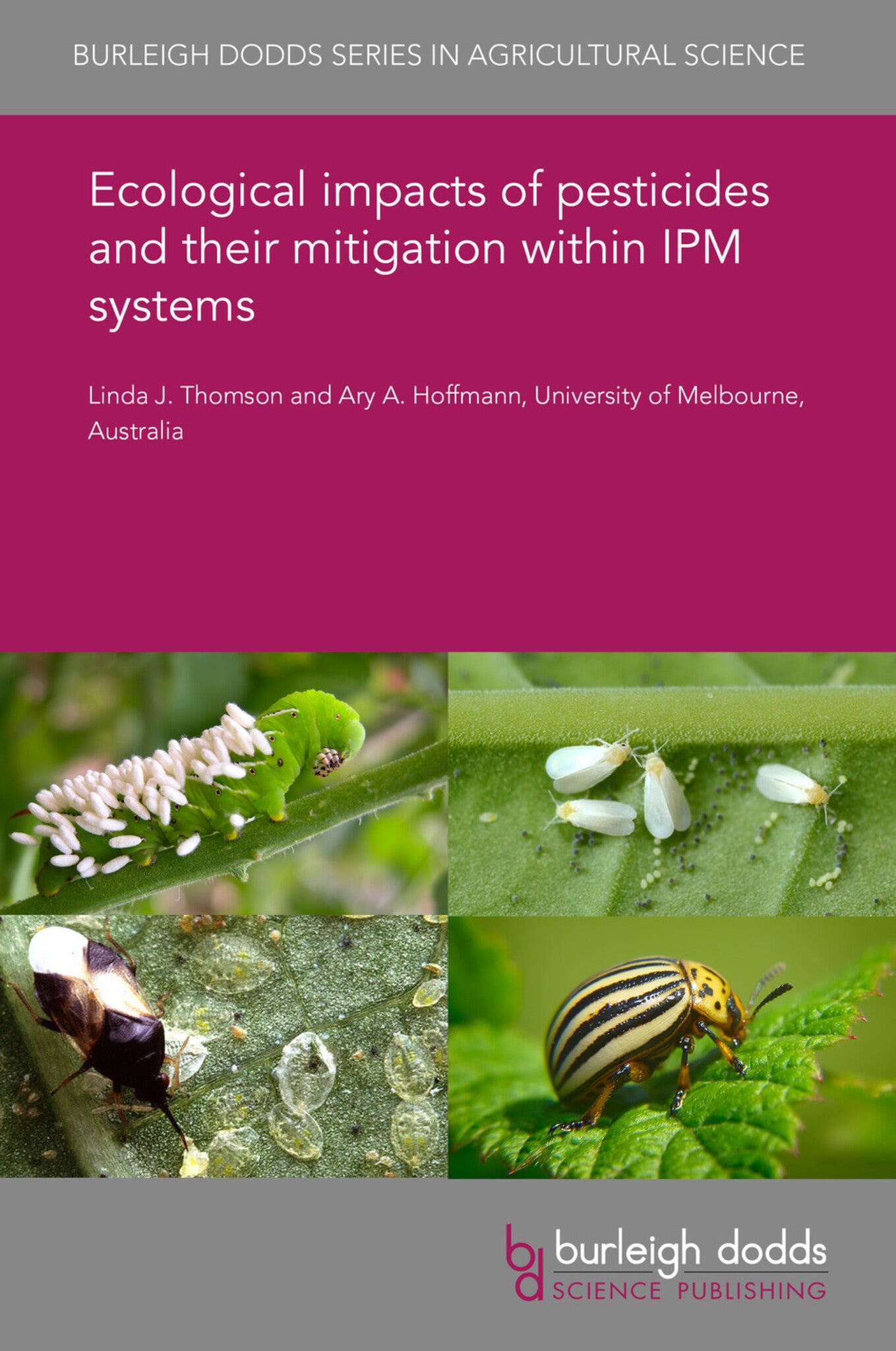We're sorry. An error has occurred
Please cancel or retry.
Ecological impacts of pesticides and their mitigation within IPM systems
Regular price
£25.00
Sale price
£25.00
Regular price
£25.00
Unit price
/
per
Sale
Sold out
Re-stocking soon
Chemicals, frequently the main method of pest control in agriculture, have negative effects on natural enemies that also control pests. Mitigation of pesticide impacts depends on increasing the rol...
Read More

Some error occured while loading the Quick View. Please close the Quick View and try reloading the page.
Couldn't load pickup availability
- Format:
-
28 October 2019

Chemicals, frequently the main method of pest control in agriculture, have negative effects on natural enemies that also control pests. Mitigation of pesticide impacts depends on increasing the role of natural enemies, reducing chemical application while still controlling pests and maintaining yields. This chapter outlines the ways in which pesticide use leads to increased pest problems and examines strategies for mitigating pesticide impacts. The chapter includes a detailed case study focussing on the diamondback moth (DBM). Finally, the chapter looks ahead to future research trends in this area.

Price: £25.00
Publisher: Burleigh Dodds Science Publishing
Imprint: Burleigh Dodds Science Publishing
Series: Burleigh Dodds Series in Agricultural Science
Publication Date:
28 October 2019
ISBN: 9781838799557
Format: eBook
BISACs:
TECHNOLOGY & ENGINEERING / Pest Control, Pest control / plant diseases, SCIENCE / Life Sciences / Zoology / Entomology, TECHNOLOGY & ENGINEERING / Agriculture / Agronomy / Crop Science, TECHNOLOGY & ENGINEERING / Agriculture / Sustainable Agriculture, Insects (entomology), Sustainable agriculture, Agronomy and crop production

1 Introduction 2 Increased pest problems with pesticide use 3 Mitigation of pesticide impacts 4 Case study: diamondback moth 5 Future trends and conclusion 6 Where to look for further information 7 References



